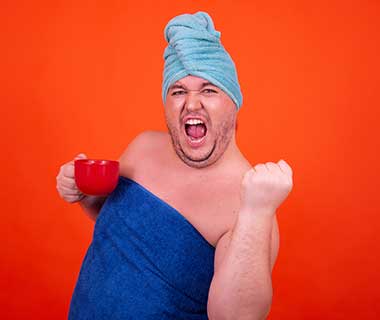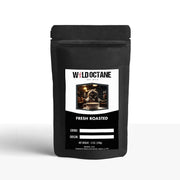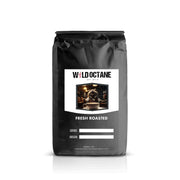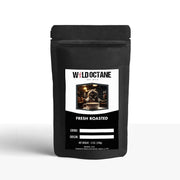On average, a standard 8-ounce cup of green tea contains about 20-45 milligrams of caffeine. However, this number isn't set in stone. A variety of factors can influence the exact caffeine content, making it possible for green tea to have slightly less or more caffeine than the average range.
Green Tea vs. Coffee: How Do They Compare?
When it comes to caffeine, green tea is significantly milder compared to coffee. A typical 8-ounce cup of brewed coffee contains around 95-200 milligrams of caffeine, which is about 2-4 times more than what you'd get from a cup of green tea.
If you’re looking for a gentle, sustained energy boost without the jitters or crash that coffee sometimes brings, green tea might be a great alternative. It provides just enough caffeine to keep you alert without overwhelming your system.
How Does Green Tea Compare to Other Teas?
-
Black Tea: Black tea is stronger than green tea in terms of caffeine content. A standard 8-ounce cup of black tea can contain anywhere from 40 to 70 milligrams of caffeine.
-
White Tea: White tea, which is the least processed of all teas, usually contains slightly less caffeine than green tea, ranging from 15-30 milligrams per cup.
-
Herbal Teas: Most herbal teas, such as chamomile or rooibos, are naturally caffeine-free since they're not made from the same plant (Camellia sinensis) as true teas like green, black, or white tea.
What Affects the Caffeine Content in Green Tea?
While the average caffeine level in green tea is fairly consistent, several factors can influence how much caffeine ends up in your cup:
-
Tea Leaf Variety: Different types of green tea leaves have varying caffeine levels. For example, matcha, a powdered form of green tea made from whole ground leaves, can have up to 70 milligrams of caffeine per serving, far more than steeped green tea.
-
Brewing Time: The longer you brew your tea, the more caffeine will be extracted from the leaves. If you steep your green tea for a short time (1-2 minutes), it will have less caffeine than tea steeped for 3-5 minutes.
-
Water Temperature: Hotter water extracts more caffeine from the tea leaves. If you're using water near boiling point, you may end up with a higher caffeine content compared to brewing with cooler water.
-
Amount of Tea Used: If you're using more tea leaves or a larger tea bag, the caffeine content will naturally be higher.
-
Processing and Type of Green Tea: The caffeine content can also vary based on how the tea leaves are processed. For instance, Sencha green tea (a popular Japanese variety) has less caffeine than Gyokuro, which is grown in shade to preserve more caffeine.
In Summary: A Quick Caffeine Breakdown
- Green Tea: 20-45 mg per cup
- Coffee: 95-200 mg per cup
- Black Tea: 40-70 mg per cup
- White Tea: 15-30 mg per cup
- Herbal Tea: 0 mg (caffeine-free)









